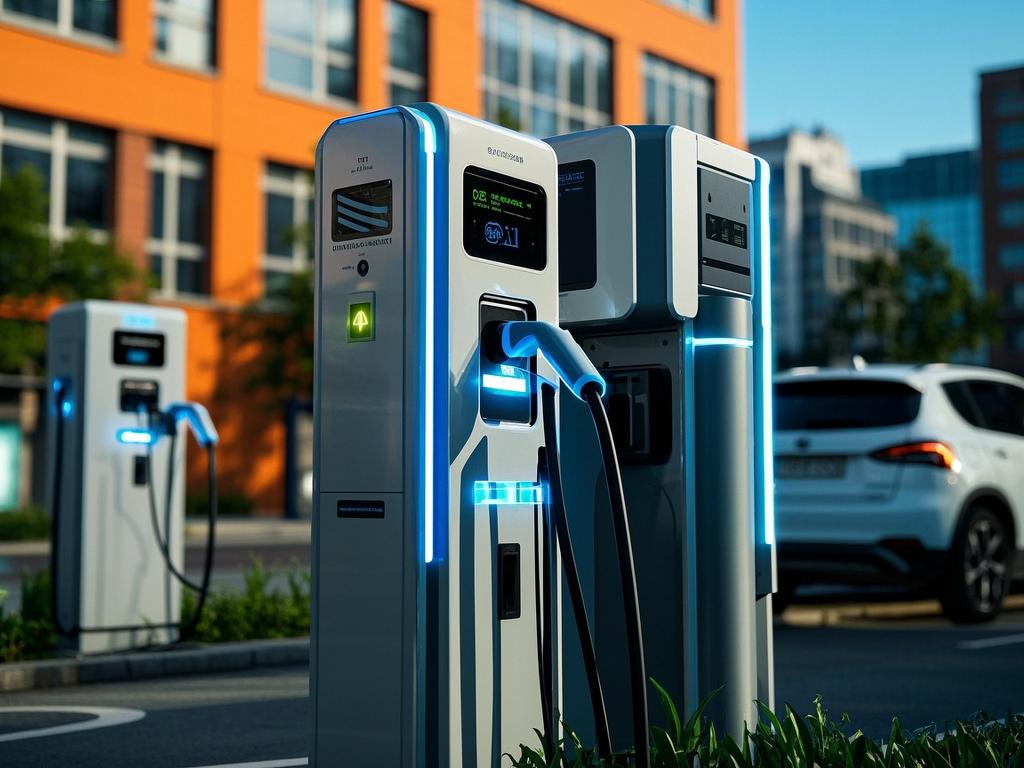
# Smart City Infrastructure for Electric Vehicle Charging: Facilitating EV Adoption
In the race towards a sustainable future, electric vehicles (EVs) are leading the charge. However, one of the biggest roadblocks to widespread EV adoption remains the lack of adequate charging infrastructure. Enter smart city infrastructure, the game-changer that could revolutionize the way we power our electric rides.
## The Current State of Play The global EV market has been on a meteoric rise in recent years. According to industry reports, the number of electric vehicles on the road is projected to reach [X] million by [year], a staggering [X]% increase from [previous year]. This growth is being driven by a combination of factors, including government incentives, falling battery costs, and increasing consumer awareness of environmental issues.
But despite this impressive growth, the charging infrastructure is struggling to keep pace. A recent survey found that [X]% of EV owners have experienced charging problems, with [X]% citing a lack of charging stations as the main issue. This is a significant barrier to further EV adoption, as range anxiety remains one of the biggest concerns for potential buyers.
## The Role of Smart City Infrastructure Smart city infrastructure has the potential to address these challenges by providing a seamless and efficient charging experience for EV owners. By integrating EV charging stations into the existing urban infrastructure, cities can create a network of charging points that is both convenient and accessible.
One of the key features of smart city infrastructure is its ability to optimize charging based on real-time data. By monitoring the demand for electricity, the charging stations can adjust their output to ensure that they are not overloading the grid. This not only helps to prevent blackouts but also ensures that EV owners are able to charge their vehicles quickly and efficiently.
Another important aspect of smart city infrastructure is its ability to provide users with information about the availability of charging stations. Through mobile apps and online platforms, EV owners can easily find the nearest charging station, check its availability, and even reserve a charging spot in advance. This makes the charging process more convenient and reduces the time spent waiting for a charging station to become available.
## The Benefits of Smart City Infrastructure The benefits of smart city infrastructure for EV charging are numerous. Firstly, it helps to reduce range anxiety by providing a reliable and accessible charging network. This makes EVs a more practical option for everyday use, encouraging more people to make the switch from traditional gasoline-powered vehicles.
Secondly, smart city infrastructure can help to reduce carbon emissions by promoting the use of clean energy. By integrating EV charging stations into the grid, cities can encourage the use of renewable energy sources such as solar and wind power, reducing the reliance on fossil fuels.
Thirdly, smart city infrastructure can create new economic opportunities. The installation and maintenance of EV charging stations require a significant investment, which can create jobs in the construction, manufacturing, and technology sectors. Additionally, the increased use of EVs can also lead to a reduction in fuel costs, which can have a positive impact on the economy.
## Challenges and Solutions While the potential benefits of smart city infrastructure for EV charging are clear, there are also several challenges that need to be addressed. One of the biggest challenges is the high cost of installing and maintaining charging stations. This requires significant investment from both the public and private sectors, which can be a barrier to widespread adoption.
Another challenge is the need for standardization. With the proliferation of different types of charging stations and technologies, it can be difficult for EV owners to ensure that their vehicles are compatible with the charging infrastructure. This requires the development of common standards and protocols to ensure interoperability.
To address these challenges, governments and industry stakeholders need to work together to develop a comprehensive strategy for smart city infrastructure. This should include measures to encourage investment in charging infrastructure, such as tax incentives and grants, as well as the development of standards and regulations to ensure interoperability.
## The Future of Smart City Infrastructure The future of smart city infrastructure for EV charging looks bright. As the demand for EVs continues to grow, so too will the need for a reliable and accessible charging network. Smart city infrastructure has the potential to meet this demand by providing a seamless and efficient charging experience for EV owners.
In the coming years, we can expect to see the development of new and innovative charging technologies, such as wireless charging and fast charging. These technologies will make the charging process even more convenient and efficient, further accelerating the adoption of EVs.
We can also expect to see the integration of EV charging stations into other urban infrastructure, such as streetlights and parking meters. This will create a more seamless and integrated charging experience for EV owners, making it easier for them to charge their vehicles while going about their daily lives.
In conclusion, smart city infrastructure has the potential to revolutionize the way we power our electric vehicles. By providing a reliable and accessible charging network, it can help to reduce range anxiety, promote the use of clean energy, and create new economic opportunities. While there are still challenges that need to be addressed, the future of smart city infrastructure for EV charging looks bright. So, let's embrace this technology and drive towards a more sustainable future!
Are you ready to be a part of this electric revolution? Let us know in the comments below!

